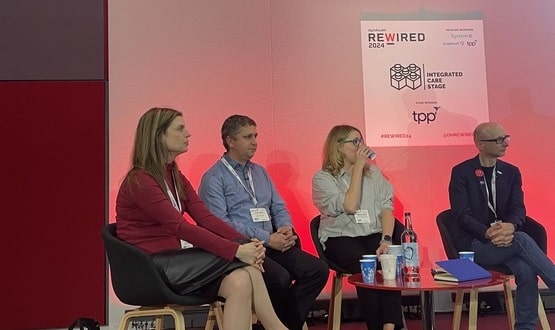Why are we stuck in first gear with Shared Care Records?
- 18 April 2023

An excessive focus on innovation may be getting in the way of progress, says Lorraine Foley, from the Professional Record Standards Body
I found so much food for thought in two recent authoritative reports (the Expert Panel to the Health and Social Care Select Committee review on digital transformation and the Hewitt Review of Integrated Care Systems), both of which rightly identified digital information sharing as vital to achieving the NHS’s vision of integrated health and care for all.
The Expert Panel had some hard truths to share in their report to the House of Commons Health and Social Care Select Committee. “Progress towards national standards and frameworks within the NHS is happening but is too slow overall,” noted the panel, chaired by Professor Dame Jane Dacre.
Dame Jane added: “We heard about issues with interoperability between systems and providers, making it difficult for all parts of the system to communicate effectively, leading to delays and efficiency losses… The aspirations to transform the NHS, supported by the right digital foundations, are to be applauded, however, our report finds evidence mainly of opportunities missed.”
Human cost of poor information sharing
In her review of Integrated Care Systems (ICSs) in England Patricia Hewitt, former secretary of state for health, called for greater autonomy and accountability for ICSs, and more emphasis on data and information sharing to improve the health and care of local populations.
Integrated Care Systems (ICSs) are trying to speed up the development of Shared Care Records and national policy (What Good Looks Like) provides clear direction that Shared Care Records should conform to PRSB’s Core Information Standard.
I was powerfully reminded at a recent Shared Care Record Summit in Leeds for the 42 ICSs that information sharing can be a matter of life and death. Nobody who heard Melissa Mead MBE speak at the Summit could fail to be profoundly moved by her story. Melissa, who received an MBE for campaigning to raise awareness of sepsis for the UK Sepsis Trust, lost her son, William, at 12 months old, to sepsis. Lack of information sharing between clinicians was partly to blame for his illness going undiagnosed until it was too late.
I was also heartened by the energy and enthusiasm of ICS teams to succeed, despite the scale of the challenge and frequent setbacks that bedevil digitisation in health and care. On the evidence I saw at the Summit, ICSs have made some great strides toward delivering interoperable Shared Care Records.
ICSs need stability and certainty
What’s more, ICSs are uniquely placed to deliver cross-system solutions and they should grasp the opportunity to do things differently. They should not fall back on top-down or bottom-up approaches but recognise and utilise the strengths of national bodies to do what they uniquely can do, while employing local discretion to achieve the best outcomes for their communities.
Take standards. ICSs clearly understand why standards are important, but I would encourage them to be more demanding of national bodies, including PRSB, to ensure that we meet their needs.
As national bodies we need to put ourselves in our customers’ shoes and communicate effectively about the benefits we offer to improve care. From a standards perspective, we need to give clear and consistent messages about which ones to use. And we must resolve the conflict between standards for direct care and standards for secondary uses, which too often is left to people at the sharp end to sort out or just endure the burden of multiple versions of the truth.
Finally, if ICSs are to succeed, and the suppliers who support them, they need stability and certainty. This is no small ask in a sector where innovation is hard-wired into people’s psyche, but continually changing tack makes progress far harder than it should be. If we can heed the advice of experts who have shared their insights about improving care through digital transformation and apply the lessons to the Shared Care Record programme, we may finally succeed.
 Lorraine Foley is chief executive officer of the Professional Record Standards Body.
Lorraine Foley is chief executive officer of the Professional Record Standards Body.




